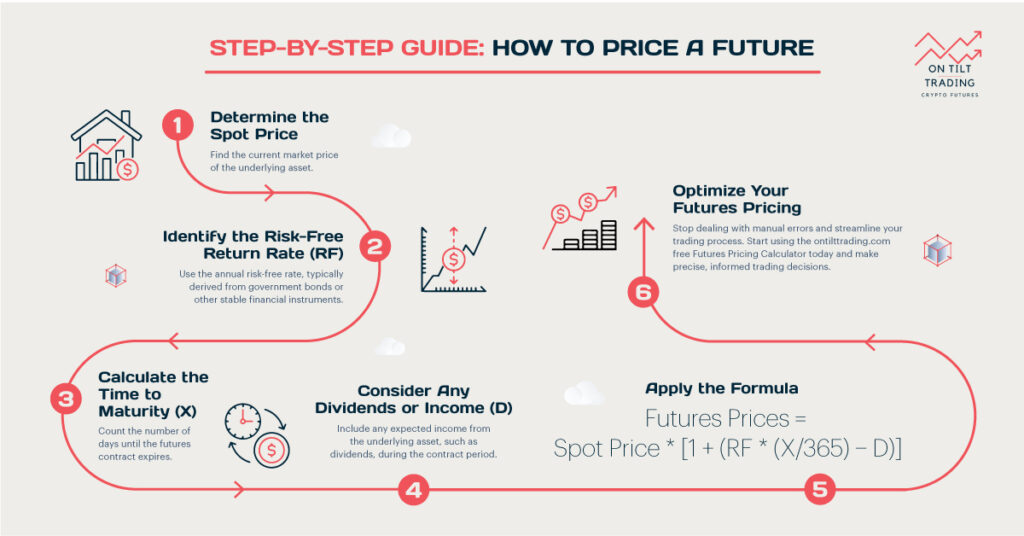There are two primary markets in the world of trading: spot and futures. Making informed investments requires understanding their differences. Markets have their characteristics and advantages, so you need to assess your trading goals and strategies. In this blog post, we will explore why many traders prefer futures over spot trading.
We will explore the benefits, key differences, and scenarios where each market may be more appropriate for you. The use of futures contracts allows traders to hedge against price fluctuations and take advantage of leverage.
What are Spot Markets?
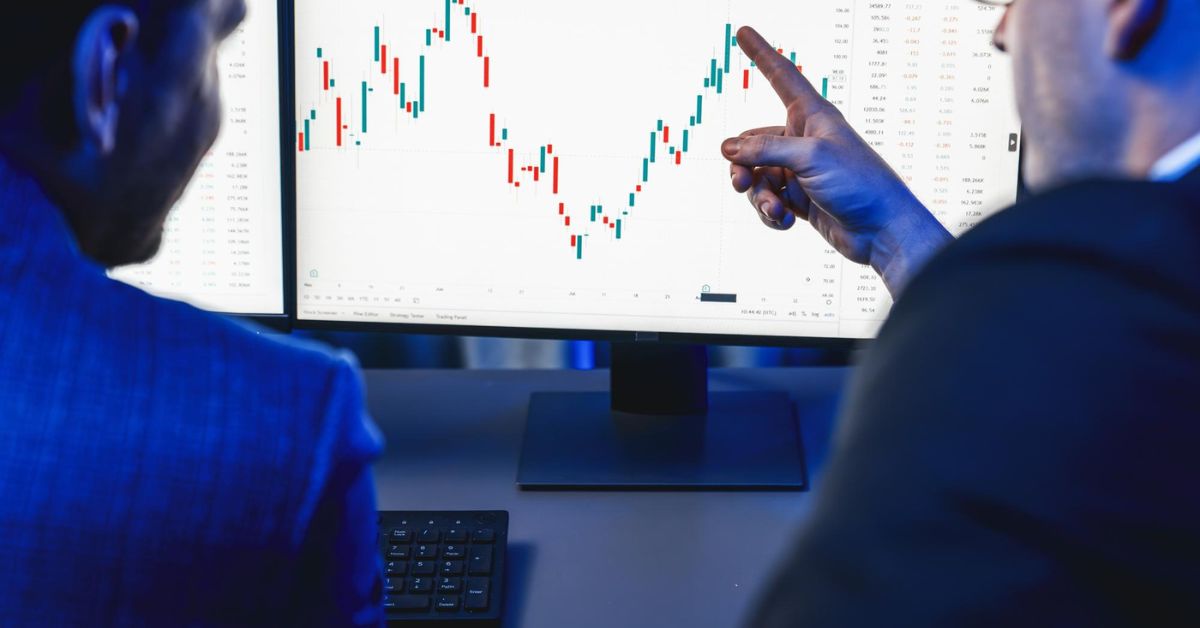
Spot markets are where assets are traded for immediate delivery. In spot trading, transactions are settled “on the spot.” This means buyers and sellers exchange assets and payments simultaneously.
Spot transactions typically involve physical commodities, currencies, or financial instruments. The price is based on the current market rate. Traders benefit from straightforward pricing and immediate settlement.
Examples of spot market trading include buying foreign currency at an exchange rate or purchasing shares at the current stock price. The simplicity of spot markets appeals to many traders.
Spot trading offers advantages such as transparency and liquidity. Prices reflect real-time market conditions, making it easier to make informed decisions. Traders can also quickly enter and exit positions.
Spot markets are ideal for those seeking short-term gains. They offer less complexity compared to futures markets. However, they lack the hedging benefits and leverage that futures provide.
What are Futures Markets?
Futures markets involve contracts to buy or sell assets at a future date. These contracts specify the price and delivery date in advance. Futures contracts are standardized and traded on exchanges. They cover commodities, currencies, and financial instruments. This standardization ensures clarity and reduces risk.
Key players in futures trading include hedgers, speculators, and arbitrageurs. Hedgers use futures to protect against price changes, while speculators aim to profit from market movements.
The advantages of trading futures include leverage and margin trading. Leverage allows traders to control large positions with less capital and can amplify gains.
Futures markets offer high liquidity and active trading. It makes it easier to enter and exit positions. They also provide price discovery, influencing spot prices.
Overall, futures markets are crucial for hedging, speculating, and ensuring market stability. They offer tools to manage risk and capitalize on price movements.
Key Differences Between Futures and Spot Markets
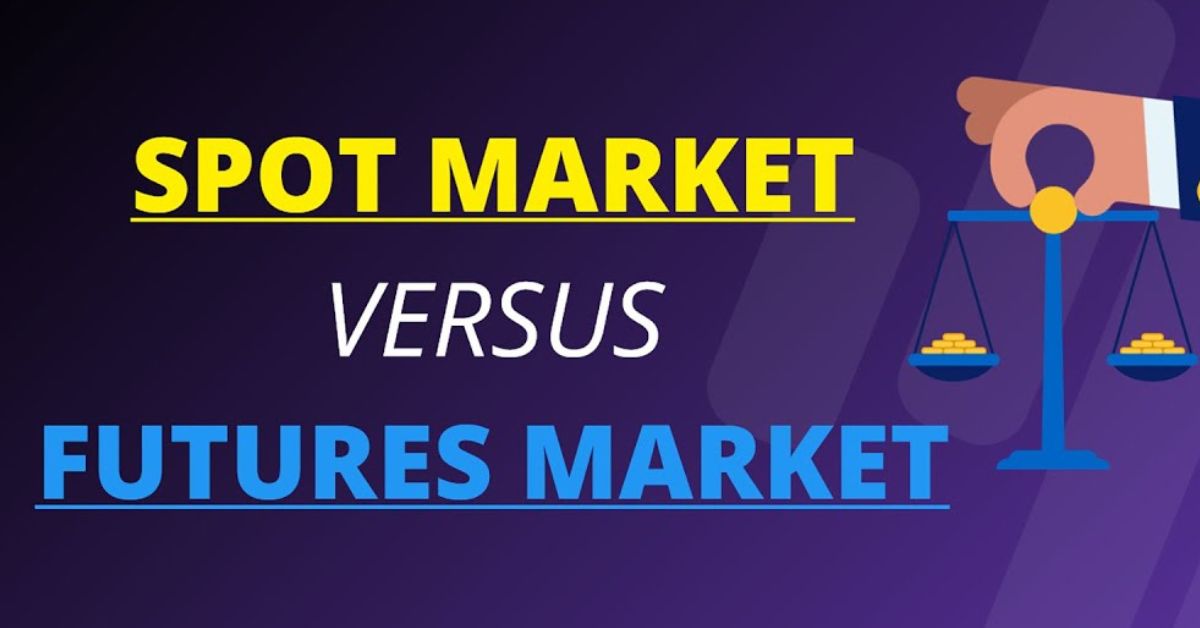
There are some differences between futures and spot markets that traders should be aware of. These markets have distinct characteristics that influence trading strategies and outcomes.
Contract Obligations
Futures contracts are legally binding agreements to buy or sell assets at a future date. They commit both parties to the transaction. Spot transactions involve immediate asset exchange without future obligations. It means that the asset and payment are exchanged on the spot. Futures provide certainty for future transactions, while spot transactions are completed instantly.
Pricing Mechanisms
Market expectations and speculation about future prices influence futures prices. Traders anticipate future supply and demand, which can drive futures prices higher or lower. Spot prices reflect the current market rate at the time of the transaction. Futures allow traders to hedge against future price changes, while spot prices are more stable.
Settlement Dates
Futures contracts have predetermined settlement dates, allowing traders to plan for future price movements and providing a clear timeline for transactions. Spot transactions settle immediately, with no delay between trade and settlement. Futures contracts specify a delivery date in the future, while spot deals are executed on the transaction date.
Why Use Futures Instead of Spot?

Traders often prefer futures over spot markets for several compelling reasons. Futures provide unique advantages such as hedging against price fluctuations, leveraging investments, and gaining access to a broader range of assets.
Hedging Against Price Fluctuations
Futures contracts are practical tools for hedging against price fluctuations in volatile markets. Traders can lock in future prices, ensuring cost stability. This is particularly beneficial for businesses dealing with commodities.
Futures can protect them against adverse price movements. This strategy reduces uncertainty and helps maintain profit margins. Spot markets do not offer this level of protection. Therefore, futures are often preferred for risk management in uncertain market conditions.
Leverage and Margin Trading
Futures trading allows traders to use leverage, which enhances potential returns. With margin trading, investors can control larger positions with less capital, amplifying profits while minimizing initial investment.
However, leverage also increases risk, as losses can escalate quickly. Spot trading typically does not offer such leverage opportunities. For traders comfortable with risk, futures provide a chance to maximize gains significantly, making futures attractive for many active traders.
Liquidity and Market Depth
Futures markets are known for their high liquidity, which is crucial for traders. High liquidity allows for quick entry and exit from positions. It reduces the risk of slippage, where prices change during order execution.
More liquidity also means tighter bid-ask spreads, enhancing profitability. Spot markets may lack the same level of depth. Thus, futures provide a more favorable trading environment, especially for large transactions. This is why many traders prefer futures markets.
Access to a Wider Range of Assets
Futures markets offer traders access to various assets, including commodities, currencies, and indices. This diversity allows for effective portfolio diversification and allows traders to take advantage of different market conditions across multiple sectors.
In contrast, spot markets often focus on immediate asset transactions, limiting options. By using futures, investors can manage risk while exploring new opportunities. This access to a broader range of assets is a significant reason many choose futures trading.
Price Discovery
Futures markets play a vital role in price discovery, reflecting market expectations about future prices. This information can guide trading strategies and investment decisions. Prices in futures markets can indicate where traders expect supply and demand to shift.
Spot prices, however, only reflect current market conditions. Futures’ forward-looking nature makes them useful for anticipating price movements. Thus, traders often prefer futures for informed decision-making based on market expectations.
Why are Futures Higher than Spots?
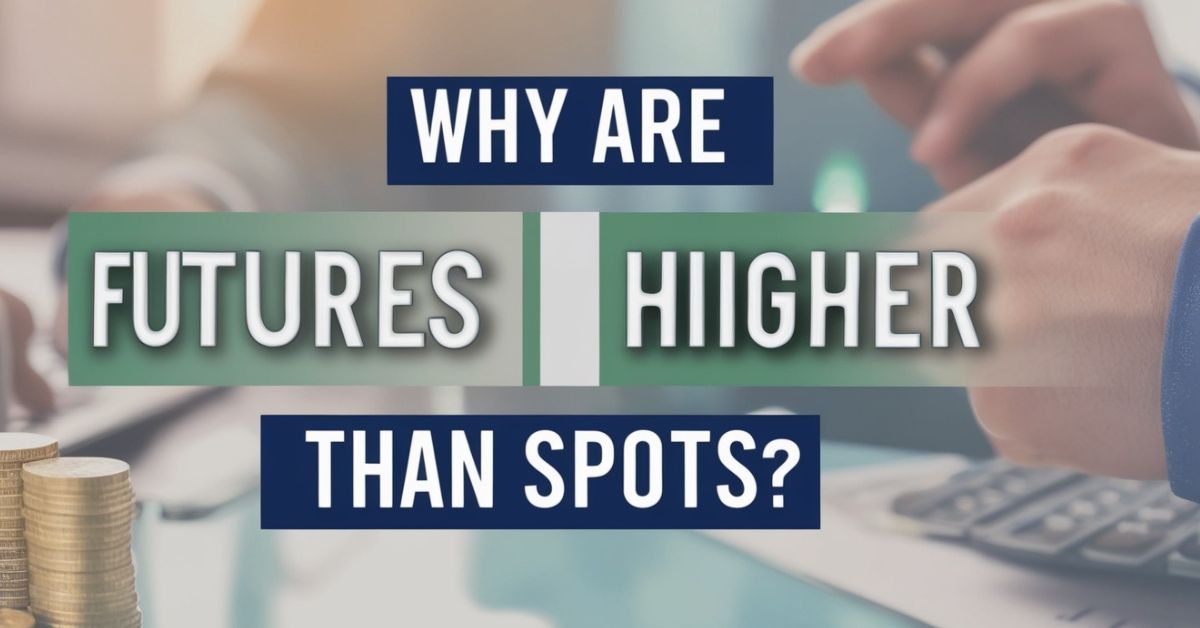
Due to several factors, futures prices often exceed spot prices. Understanding these reasons is essential for traders and investors.
Carrying Costs
Futures prices include carrying costs, which encompass storage, insurance, and financing fees. These costs accumulate over time and affect future pricing. As a result, futures contracts tend to be priced higher than the spot price.
Supply and Demand Dynamics
Market expectations regarding future supply and demand can influence future prices. If traders anticipate higher future demand or lower supply, prices may rise. This speculation often leads to futures trading at a premium to spot prices.
Inflation Expectations
Inflation can significantly impact futures prices. When traders expect inflation to rise, they may pay more for future contracts. This anticipation of increased costs in the future leads to higher futures prices compared to current spot prices.
Time Value of Money
The time value of money plays a crucial role in futures pricing. Money has the potential to earn interest over time, which is factored into futures contracts. It can result in futures being priced higher than spot prices, reflecting the opportunity cost of capital.
Market Sentiment
Market sentiment and investor psychology can also affect futures prices. If traders are optimistic about future price increases, they may drive up futures prices. This collective sentiment often results in a higher price for futures compared to the spot market.
When to Use Spot Instead of Futures
Spot markets are often preferable for immediate transactions, especially when you need quick asset access. If you require immediate ownership of an asset, spot trading is ideal. Additionally, spot markets are suitable for those looking to avoid the complexities of futures contracts. If market volatility is high, trading in the spot market may reduce risk exposure.
Short-Term Trading Strategies
Spot markets are often more advantageous for short-term trading strategies. Traders can capitalize on small price fluctuations quickly without long-term commitments, and spot trading allows for more flexibility and responsiveness to market changes.
The immediacy of spot markets can be beneficial when executing day trading strategies. Spot markets facilitate rapid entry and exit, making them perfect for traders focused on short-term gains.
Personal Preferences and Risk Tolerance
Traders’ personal preferences and risk tolerance play significant roles in choosing between spot and futures markets. Some traders prefer the simplicity and straightforwardness of spot transactions. If you have a lower risk tolerance, spot trading may suit your style better.
Futures trading involves higher leverage and potential losses, which may not align with conservative investment approaches. Assessing your risk profile is essential when deciding between these trading options.
In summary, while futures trading offers various advantages, spot markets are better suited for specific situations. Personal preferences, short-term strategies, and immediate asset needs often make spot trading the preferred choice.
FAQs
Why Buy Futures Instead of Spot?
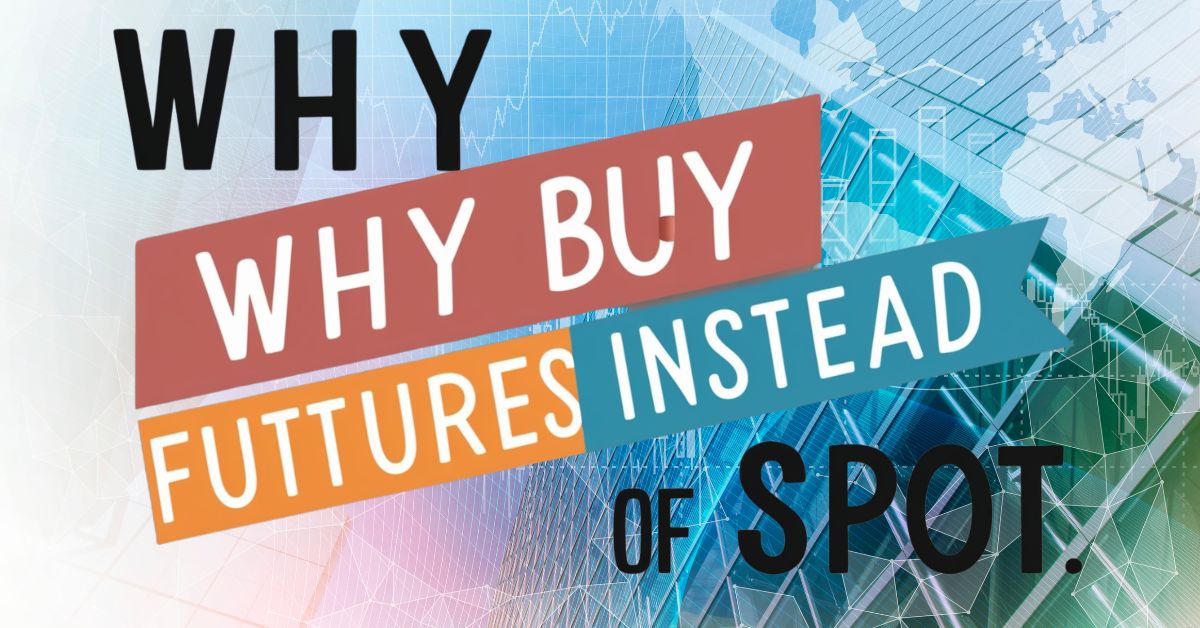
Buying futures instead of spots offers several advantages. First, futures allow for hedging against price fluctuations, which can protect investments. Second, they provide leverage, enabling traders to control larger positions with a smaller capital outlay. It can amplify potential gains.
Third, futures markets often include a broader range of assets, allowing for more trading opportunities. Additionally, futures can be used for speculation, as traders can profit from price movements without needing to own the underlying asset. Overall, futures provide flexibility, and strategic options that spot markets may not offer.
Why are Futures Better than Forex?
Futures trading offers several advantages over forex trading. First, futures contracts have standardized terms, which provide transparency and consistency and reduce confusion about contract specifications. Second, futures markets are regulated, enhancing investor protection and reducing the risk of fraud.
Third, futures allow traders to hedge against price fluctuations in various assets, providing greater risk management options. Additionally, futures contracts have set expiration dates, allowing for clearer trading strategies to be planned. Lastly, futures often have lower transaction costs compared to forex, making them more cost-effective for traders.
Why are Futures Better than Options?
Futures trading offers several advantages over options trading. First, futures contracts provide a straightforward structure, with clear obligations to buy or sell an asset. They also eliminate the complexity of options strategies and expiration dates.
Second, futures have no premium costs, unlike options, where traders pay for the right to buy or sell. Third, futures provide direct exposure to price movements, allowing for potentially higher profits without the risk of options expiring worthless. Lastly, futures markets are often more liquid than options, facilitating easier entry and exit from positions.
Is Spot Safer than Futures?
Yes, spot trading is generally safer than futures trading. Spot markets involve immediate transactions, which eliminate the risk of price fluctuations over time. Traders pay the current market price and receive the asset instantly, reducing uncertainty. In contrast, futures involve leverage, which can amplify both profits and losses, increasing risk exposure.
Additionally, futures contracts have expiration dates, adding complexity and the potential for loss if positions are not appropriately managed. Overall, for risk-averse traders, spot trading offers a more straightforward and safer approach.
Read More: Can I Trade Crypto Futures In The U.S.
Final Thoughts
Ultimately, recognizing the differences between futures and spot trading is essential for informed decision-making. Futures offer unique advantages, including leverage, hedging opportunities, and access to various asset classes. Spot trading, on the other hand, provides immediacy, simplicity, and less risk from price fluctuations.
Deciding between futures and spot trading depends on your trading goals, risk tolerance, and strategy. Each option has its merits, and your choice should align with your trading style. Having the right tools is crucial for enhancing your trading experience.

